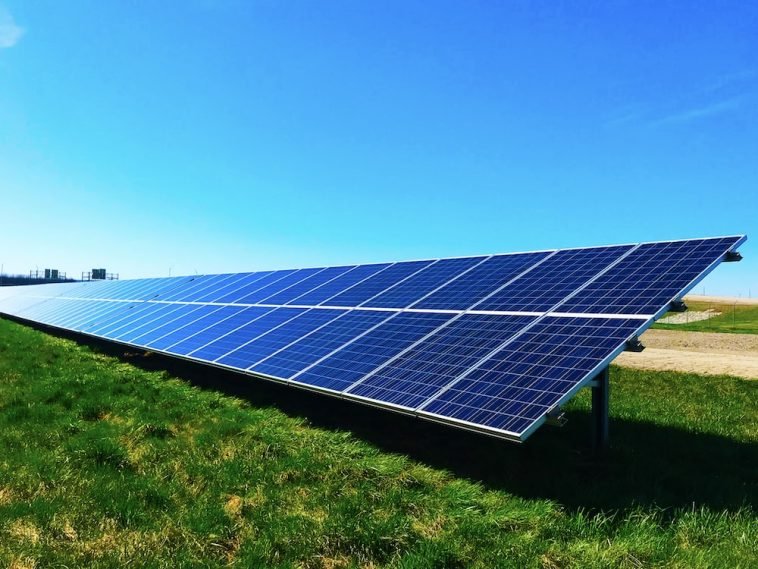Introduction.
The demand for renewable energy, especially solar energy, is growing rapidly in Nigeria.
With the country facing frequent power outages and rising electricity costs, many people are looking for reliable and affordable ways to power their homes and businesses. Solar energy has become a popular solution, offering clean, renewable, and sustainable power.
Starting a solar panel business in Nigeria is a great opportunity to meet this demand while building a profitable venture.
But where do you begin? I’ll walk you through everything you need to know, from the reasons why this industry is booming to the practical steps to start and grow your business.
Why Solar Energy is a Big Deal in Nigeria
Nigeria’s power sector struggles to meet the energy needs of its growing population. According to the World Bank, only about 55% of Nigerians have access to electricity, and even those with access experience regular outages.
This leaves millions relying on costly generators, which are not only expensive but also harmful to the environment.
Solar energy provides an alternative. It’s renewable, reliable, and becoming more affordable as technology improves.
Businesses and households are increasingly adopting solar systems to reduce energy costs and become less dependent on unstable grid electricity.
This rising demand has created opportunities for entrepreneurs to step into the solar panel market—selling, installing, and maintaining solar systems. If you’re considering joining this industry, you’re on the right path.
How Do Start a Solar Panel Business in Nigeria?
1. Understand the Market
The first step is to know who your customers are and what they need. Most customers in Nigeria want affordable solar solutions that work well for their power needs.
Some are looking for small systems to power lights and fans, while others need larger setups for their entire household or business.
To better understand the market, research common issues people face with power, find out what solar products are in demand, and learn about your competitors.
2. Choose a Niche
The solar business has different areas you can focus on. You might choose to:
- Sell solar products like panels, inverters, batteries, and charge controllers.
- Offer installation services.
- Provide maintenance and repairs.
- Work as a consultant, helping others design solar systems.
Choosing a niche lets you focus on building expertise in one area before expanding later.
3. Create a Business Plan
A good business plan helps you stay organized and sets clear goals. It should include:
- Your target market: Who are your customers?
- Startup costs: How much do you need to invest?
- Revenue streams: How will you make money?
- Marketing strategy: How will you reach your customers?
4. Get the Right Training
You don’t need to be an engineer to start a solar business, but understanding how solar systems work is important.
Many organizations and companies in Nigeria offer training programs in solar energy. Consider taking a course to learn about:
- Installing solar panels.
- Sizing systems for different energy needs.
- Handling troubleshooting and repairs.
This knowledge will help you build trust with your customers and ensure quality service.
5. Register Your Business
To operate legally, you need to register your business with the Corporate Affairs Commission (CAC) in Nigeria. Choose a business name, register it, and get all the necessary permits and licenses.
Having a registered business also helps build credibility with customers.
6. Find Reliable Suppliers
Your success depends on selling high-quality solar products, so it’s important to find trustworthy suppliers.
Look for manufacturers or wholesalers who offer durable products at good prices. Some well-known brands include Canadian Solar, Jinko Solar, and LG Solar.
When choosing suppliers, consider product warranties and after-sales support as well.
7. Set Up Your Operations
Decide how you’ll run your business. Will you open a physical shop, or will your business operate online?
Both options have advantages. An online store can reduce overhead costs, while a physical shop allows customers to see products before buying.
You’ll also need a storage space for inventory, especially if you’re dealing in large quantities of panels and equipment.
8. Promote Your Business
Marketing is key to getting customers. You can use:
- Social media: Platforms like Facebook, Instagram, and WhatsApp are great for reaching local audiences.
- Word-of-mouth: Satisfied customers can bring referrals.
- Community outreach: Partner with local organizations to promote solar awareness.
Highlight the benefits of solar energy, such as cost savings and reliability, in your promotions.
9. Offer Great Customer Service
Customer satisfaction can set you apart from competitors. Make sure to:
- Provide clear information about your products and services.
- Deliver on time.
- Offer after-sales support, such as system checkups and repairs.
Happy customers are more likely to recommend your business to others.
10. Stay Updated
The solar industry evolves quickly. Keep up with new technologies, government policies, and market trends.
For example, Nigeria’s government has programs like the Solar Power Naija initiative, which supports solar adoption. Staying informed can help you take advantage of opportunities.
Costs of Starting a Solar Business in Nigeria
Your startup costs depend on the scale of your business. Here’s a rough breakdown:
- Training: ₦50,000 to ₦200,000.
- Business registration: Around ₦20,000.
- Solar inventory: ₦500,000 to ₦5,000,000, depending on how much stock you want to carry.
- Marketing: ₦50,000 to ₦200,000.
- Other expenses (tools, rent, etc.): ₦100,000 to ₦500,000.
You can start small and scale up as your business grows.
Challenges to Expect
Like any business, the solar panel industry has its challenges:
- High initial costs: Solar products can be expensive to stock.
- Customer skepticism: Some people may doubt the effectiveness of solar systems.
- Competition: The market is growing, but so is the number of players.
The good news is that these challenges can be overcome with careful planning and persistence.
FAQs
1. Is the solar panel business profitable in Nigeria?
Yes, it can be very profitable. As demand for solar energy grows, more customers are willing to invest in quality systems. Offering reliable products and services ensures steady income.
2. How long does it take to start making money?
This depends on your initial investment and marketing efforts. Some businesses start seeing profits within a few months, while others take longer to break even.
3. Do I need a technical background?
While it helps, you don’t need a technical background to start. You can hire skilled staff or partner with technicians. Taking a basic training course can also give you the knowledge you need.
Conclusion
Starting a solar panel business in Nigeria is not just about making money—it’s also about providing a solution to one of the country’s biggest problems: unreliable electricity.
By offering affordable and reliable solar systems, you can help improve lives and contribute to a greener future.
What steps will you take today to turn this opportunity into a reality?





GIPHY App Key not set. Please check settings